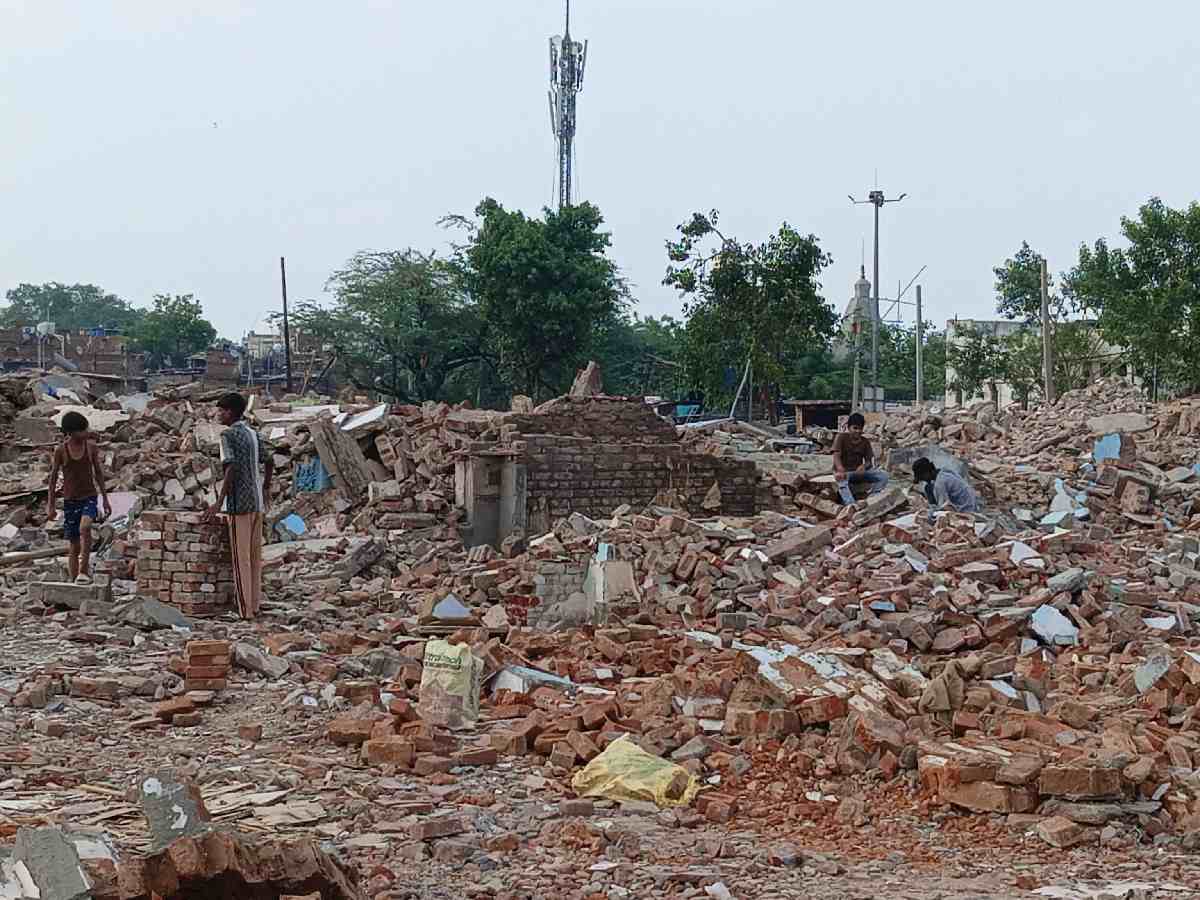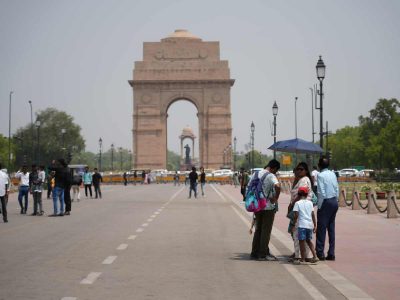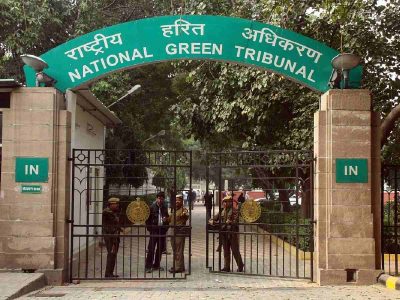Lying under a crumbling building block that once served as the local temple, Raviprakash, 34, waits for respite from the dread that now envelops what remains of Bhoomiheen Camp. Nearby, tending to his swollen left calf, Dwivesh settles on the charpoy—the only shelter he has left.
Alongside his father, Svaminath, he is left without a home. All that remains are a few biscuit packets and a bundle of clothes wrapped in a potli. “During the demolition, I tried retrieving my belongings from the rubble, but I injured myself in the rush,” he said. “A nerve got ruptured but I didn’t feel it then. I continued working for a couple of days, but the pain became unbearable. The doctors said I need surgery, but I can’t afford it. I can barely walk now,” he added, pointing to his swollen calf.
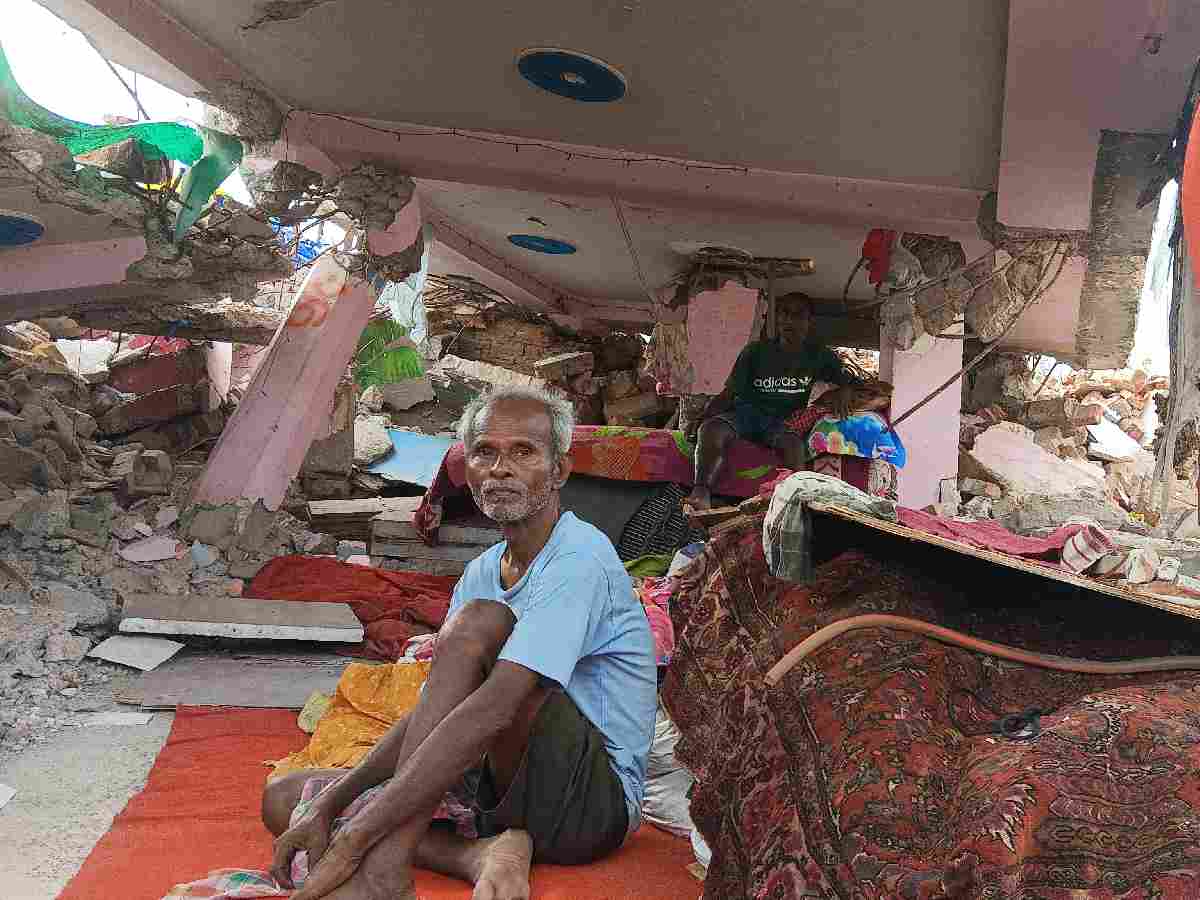
Neither Raviprakash nor Svaminath has eaten for the past three days. “Work is hard to come by, and in this condition I cannot work. My father is nearly 80. I can’t leave him alone or expect him to work either,” he said, while Svaminath stared blankly at what used to be their home. Above them looms a crumbling temple structure held up by debris and a single damaged pillar.
Demolition begins despite High Court hearing
Moments before pleas to halt the demolition at Bhoomiheen Camp in Southeast Delhi’s Govindpuri were heard by a vacation bench of the High Court on June 17, civic authorities had already begun razing homes. The two petitioners in the case saw their houses destroyed.
When the petition was considered, Justices Tushar Rao Gedela and Harish Vaidyanathan Shankar declined to stay the Delhi Development Authority’s (DDA) demolition drive, while issuing notices to the authorities.
But it was not just Bhoomiheen Camp that bore the brunt. Two other slum clusters—Jailorwala Bagh and Madrasi Camp—also witnessed large-scale demolitions. Residents claimed that even buildings with court-ordered stay notices were razed.
Bhoomiheen Camp: A three-decade-old settlement wiped out
Once among the oldest JJ clusters in Delhi, Bhoomiheen Camp was home to migrants from Uttar Pradesh, Bihar, West Bengal, and other states. During court hearings, it was noted that residents included domestic workers, factory hands, shop labourers, and others with limited income.
Petitioners first approached the court in 2023, alleging that the DDA, in an “arbitrary and unlawful manner,” planned to demolish their homes. They claimed that the DDA failed to follow due process under the Delhi Slum & JJ Rehabilitation and Relocation Policy, 2015, and had outsourced surveys to an obscure agency.
In a ruling delivered on May 26 against 44 residents seeking relief, Justice Sharma observed that the DDA had “substantially complied with all prescribed procedures.” He refused to quash the survey, stating that petitioners had “no vested right” to rehabilitation and blaming prior stay orders for delays and escalated costs.
The court noted that the DDA had already spent over Rs 835.88 crore on in-situ rehabilitation for Bhoomiheen Camp residents and said further delays would increase costs and hinder relocation for others. According to the DDA, 1,029 households were found ineligible, while 1,862 were marked eligible.
Those ineligible now face homelessness.
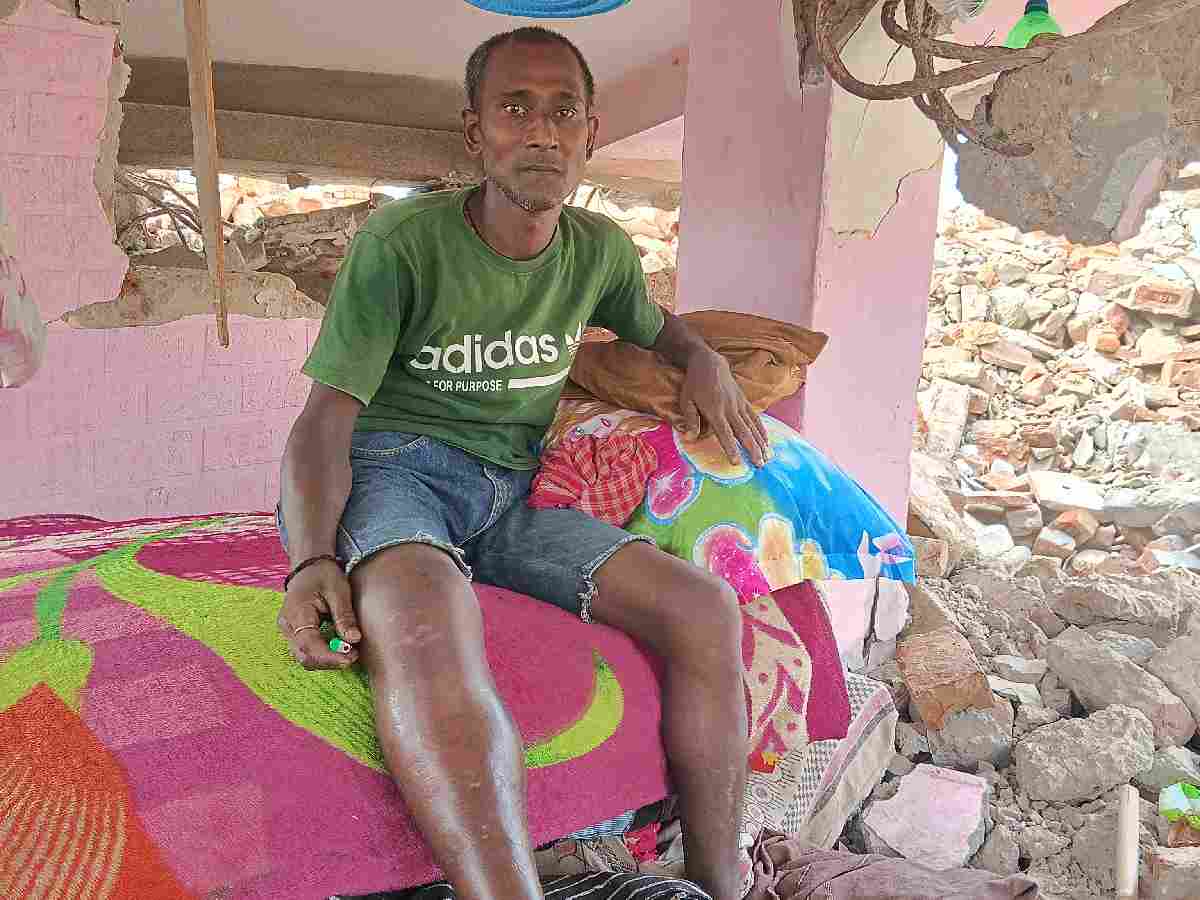
Rekha Rani Das, 72, was seen lying under the scorching sun, eating puffed rice and offering tea to her former neighbours. It was her first meal in two days. “I don’t have the money to rent a place. Landlords have hiked rents. I can’t even afford food,” she said.
Hari Shanker, nearly 20, a law student, has taken on the legal battle for his community. “These people are poor and not educated. I study law; it is only fair that I use it to fight for my home,” he said. “But no matter how hard we try, the country is not built for the poor. Every policy is exclusionary.”
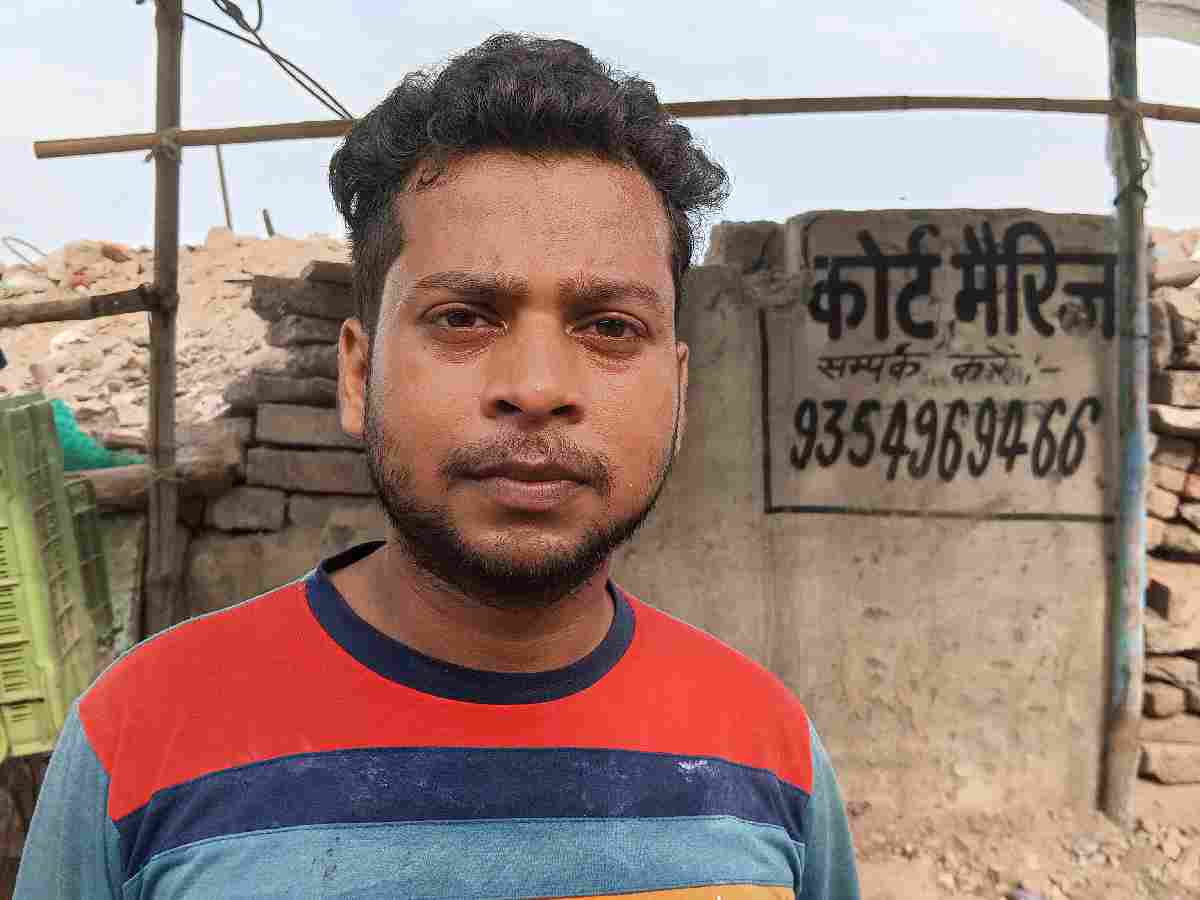
Jailorwala Bagh: Homes demolished despite stay
At Jailorwala Bagh, 567 households were deemed ineligible, while 1,078 families received housing under the DDA’s in-situ programme. However, controversy surrounds the demolition of homes protected by court orders.
“Despite a stay until September 1 from the High Court, they demolished my house,” said Krishna, 19, standing beside the rubble.
His was one of two homes destroyed despite a stay order granted on May 9 to at least 23 families. The court had found the DDA’s eligibility criteria arbitrary and offered interim protection.
Also Read: Despite machines, manual scavenging, only 70% of desilting finished in Delhi
Now, these families plan to file a contempt petition, but must wait until the court reopens on June 30.
Krishna’s father, Ramsurat, polishes steel utensils in Wazirpur Industrial Area and is the family’s sole earner. Krishna had recently secured a data entry job after passing Class 12, but their housing crisis may derail that.
“My wife needs surgery and can barely move. Now our home is gone. Rent is unaffordable. We have no roof,” said Ramsurat.
The family of five has rented a single room in Azadpur for Rs 6,000, salvaging what they could.
Rahul, another resident, lost his home despite a stay. “We’ve lost everything—our belongings, our shelter, our dignity. It’s raining, and we’re huddled under a plastic sheet,” he said.
Rahul said his home had been marked ‘ST’ by the DDA, indicating it was safe. But three days before the demolition, police reportedly told those without stay orders to vacate. “I didn’t leave because I had a valid stay,” he said.
Mithoon, a community leader assisting families, said, “The DDA has no evidence or justification. Even our lawyer says the removal was arbitrary.” His grandmother, Kela Devi, also lost her home.
A similar contempt case has been filed regarding Bhoomiheen Camp. “We have filed a contempt proceeding against the DDA but don’t know when it will be taken up,” said Shanker.
Madrasi Camp: Tamil community uprooted
In Jangpura’s Madrasi Camp, the first of the three settlements to be demolished, around 300 residents lost their homes on June 1.
Janaki, 60, who arrived in Delhi nearly 50 years ago, stood helpless as a bulldozer flattened her house. “We thought we were safe since the camp was beside a drain. No one imagined anything else would be built here,” she said.
Her family of three was among 155 families marked ineligible for DDA rehabilitation.
In a March ruling, the High Court noted that the Barapullah drain was obstructed by the JJ cluster and needed clearing before the monsoon. Demolition was postponed from May 10 to June 1. The court also directed the DDA and Delhi Urban Shelter Improvement Board (DUSIB) to ensure amenities at the Narela flats and facilitate relocation.
Sumodhi, a domestic worker, said, “I earn Rs 7,000–8,000 a month. How can I pay rent?”
Even for the 215 families eligible for flats in Narela, relief is scarce. They oppose relocation due to its 50 km distance and poor infrastructure.
Selvi, whose daughter studies at Delhi Tamil Education Association (DTEA) School in Lodhi Estate, said, “My daughter is in Class 12—her most critical year. Commuting from Narela is impossible. Changing schools is not an option.” Her son studies at Ramanujan College, just 15 minutes away.
Selvi’s family now rents a flat in Bhogal for Rs 12,000. Others found temporary homes in Sarai Kale Khan and Ashram.
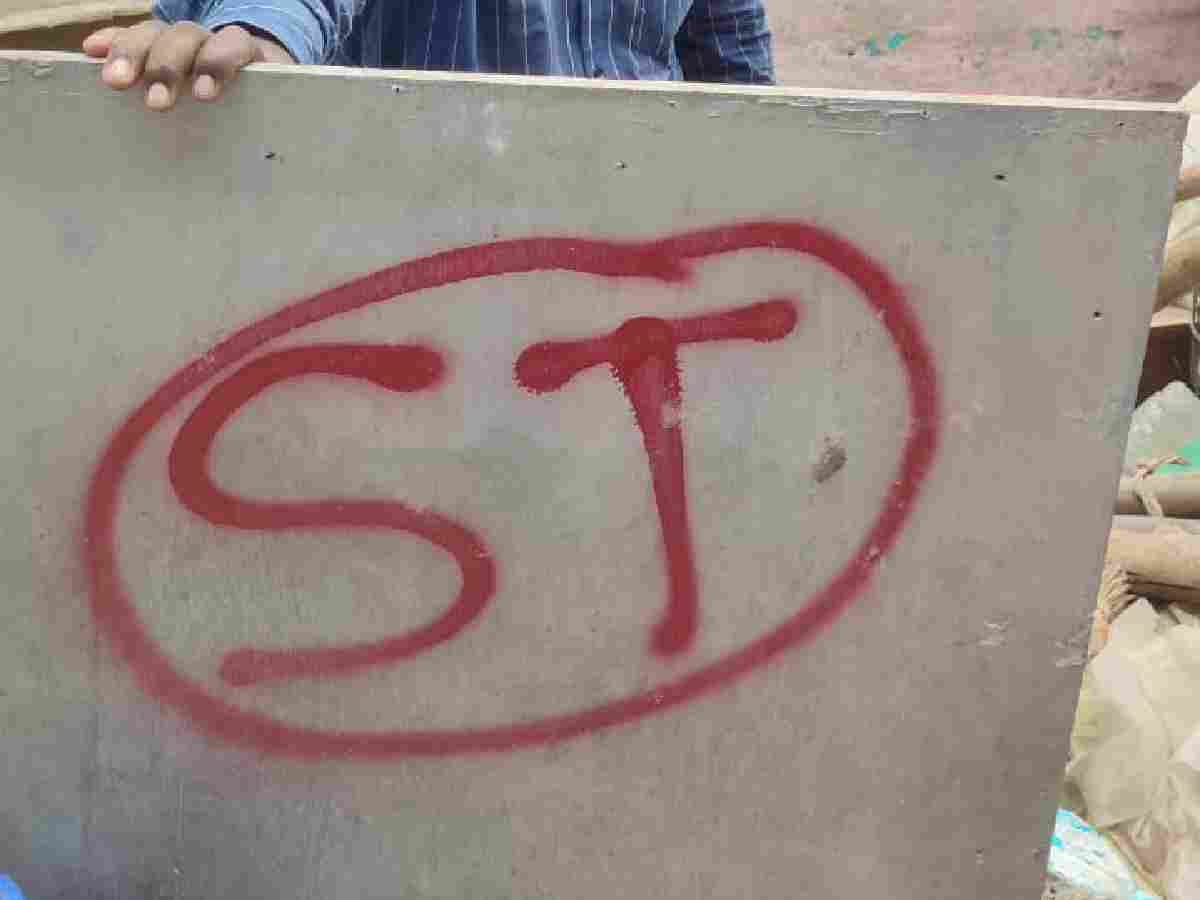
Veeran, 40, moved to Bhogal two days earlier. He sat beside salvaged scrap—pipes, taps, iron bars—to sell. His wife is a domestic worker; he washes cars.
“This is an affluent area; we all had work here. What work will I find in Narela? My kids go to DTEA School too. Where will they study?” he asked. “I’ve seen the Narela flats. The tiles and pipes are stolen. There’s no water or electricity. How do they expect us to live there?”
These clusters, ironically, are among the 675 JJ clusters recognised by DUSIB. The 2015 DUSIB policy made alternate housing a right, but arbitrary criteria have made access increasingly difficult.

